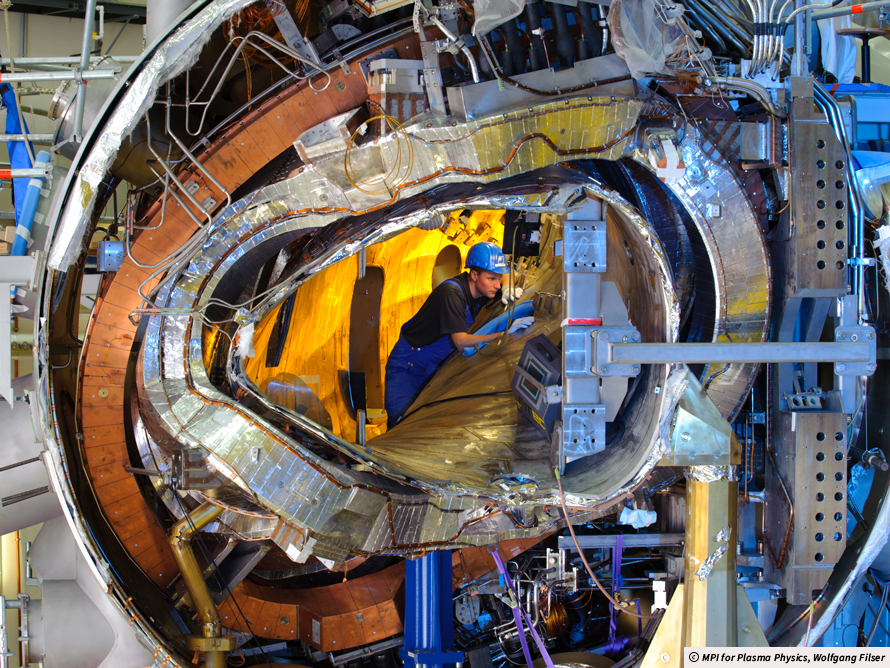Could nuclear fusion save the planet? Scientists have made a huge breakthrough towards this prized technology. But not everyone is convinced that fusion will be our saviour.
Stunning leap towards limitless energy
 Power: The 43-second breakthrough was achieved in the Wendelstein 7-X Stellarator, which is named after the Wendelstein mountain in Bavaria, Germany.
Power: The 43-second breakthrough was achieved in the Wendelstein 7-X Stellarator, which is named after the Wendelstein mountain in Bavaria, Germany. Glossary
Sanity - The ability to think and behave in a rational, reasonable manner.
Nuclear fusion - A potential means of generating nuclear power by combining two atoms to produce a new atom as well as a large amount of energy. It mimics the way in which stars produce energy.
Prototype - Original or test version of something.
Nuclear fission - A nuclear reaction in which nuclear material, usually uranium, is split into smaller atoms, creating excess energy that can be harvested.
Neutrons - A subatomic particle with no electric charge, found in the nucleus of an atom.
Atoms - The smallest unit of any chemical element.
Nuclear - A nuclear weapon has a devastating potential to cause damage. A few countries around the world have them.
Uranium-235 - An isotope of uranium that is capable of sustaining a fission chain reaction.
Hydrogen - The first element in the periodic table, and the most common element in the Universe. Stars are mostly made up of hydrogen.
Helium - A very light gas used in balloons to make them float. Old airships used hydrogen, but it burnt easily. Helium does not burn.
Fossil fuels - Fuels made from decomposing plants and animals, including coal, natural gas and oil. These fuels release carbon dioxide, causing global warming.
Plasma - a gas charged with electricity, found in stars such as the Sun. Physicists regard it as a state of matter, along with gas, liquid and solid.
Renewable - Energy sources, such as wind and solar power.

